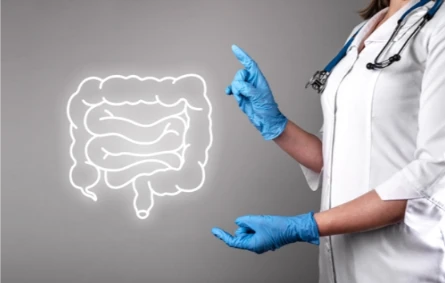Colonoscopy
Colonoscopy is a visual examination of the lining of your colon (large intestine) and sometimes the end of your small intestine. A long flexible tube (colonoscope) is inserted into the rectum and advanced throughout the colon. Through this instrument the doctor will be able to look for any abnormalities that may be present. If indicated small biopsies (tissue samples) may be taken, and polyps (abnormal growths of tissue) may be removed during the procedure. This is usually a painless process. This technique can also be used to control bleeding. Unless specifically requested by the patient, this examination is performed with the patient under sedation.
Risks
The risks of colonoscopy are uncommon (occurring in approximately less that 1 in 1000) and include but are not limited to Perforation needing surgery, Bleeding, Infection, Anesthesia and the small chance of missing a cancer due to anatomy or preparation. Be sure to inform your nurse or doctor should you experience any severe pain, fever or bleeding after your procedure.
Preparation
To allow a clear view the entire colon must be completely free of waste material. You will be given preparation instructions with this packet which need to be followed. Avoid taking any iron supplements for 1 week before your test. Please discuss and any questions regarding medication with your physician prior to your appointment for your procedure.

What Will Happen
Upon arrival to your test facility you will be asked to check in. After this, you will be escorted to the pre-procedure area. The doctor and/or nurse will explain the procedure and answer your questions. Please tell them if you have had any other endoscopic procedures and if you have any allergies to medications. You will be asked to sign a consent form giving your permission to have the procedure. An intravenous line will be placed for medication to be given during your examination. Once in the procedure room, monitoring equipment will be placed so that your breathing, heart and blood pressure can be observed. You will be given sedation and once asleep, the examination will take place. The examination usually takes about 20-30 minutes.
Afterwards
You will be brought back to a recovery area and will be monitored until you are ready to leave. This usually takes between 20-60 minutes. For the remainder of the day you are not to drive, operate heavy equipment or dangerous equipment or make important decisions.
Colonoscopy Preparation Forms
- Magnesium Citrate prep (Most Common – for those without history of Kidney Disease or Heart Failure)
- Colyte Prep (for those with history of Kidney Disease or Heart Failure) (Prescription required)
- 2 Day Prep
- Sutab prep (Prescription required)
- Home Medication Instructions (for ALL Colonoscopy and Endoscopy Patients)
- Colonoscopy Information sheet
- Orchard Surgical Center Information
